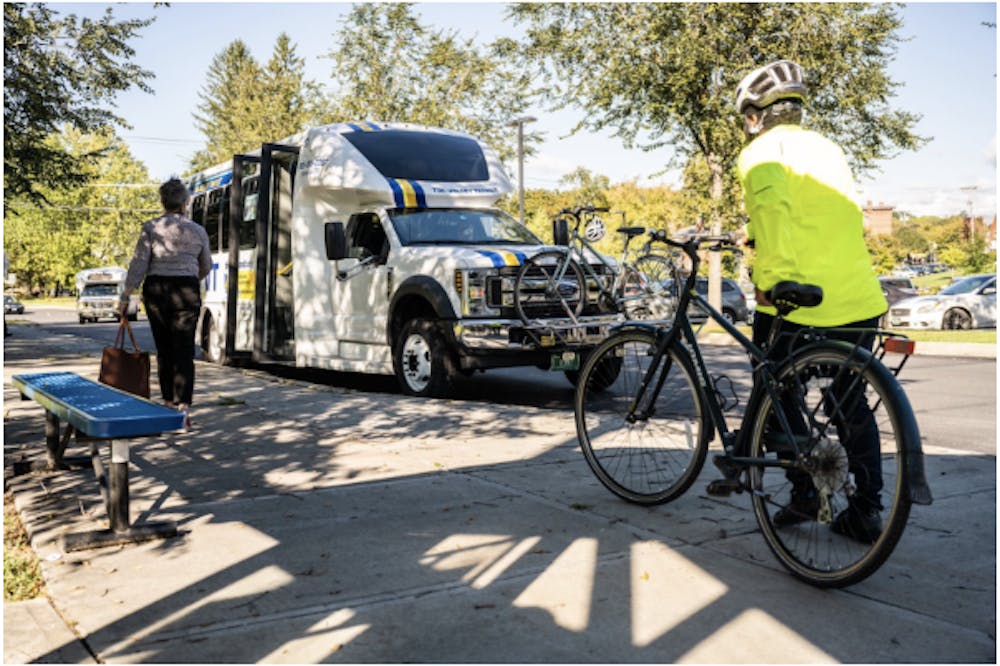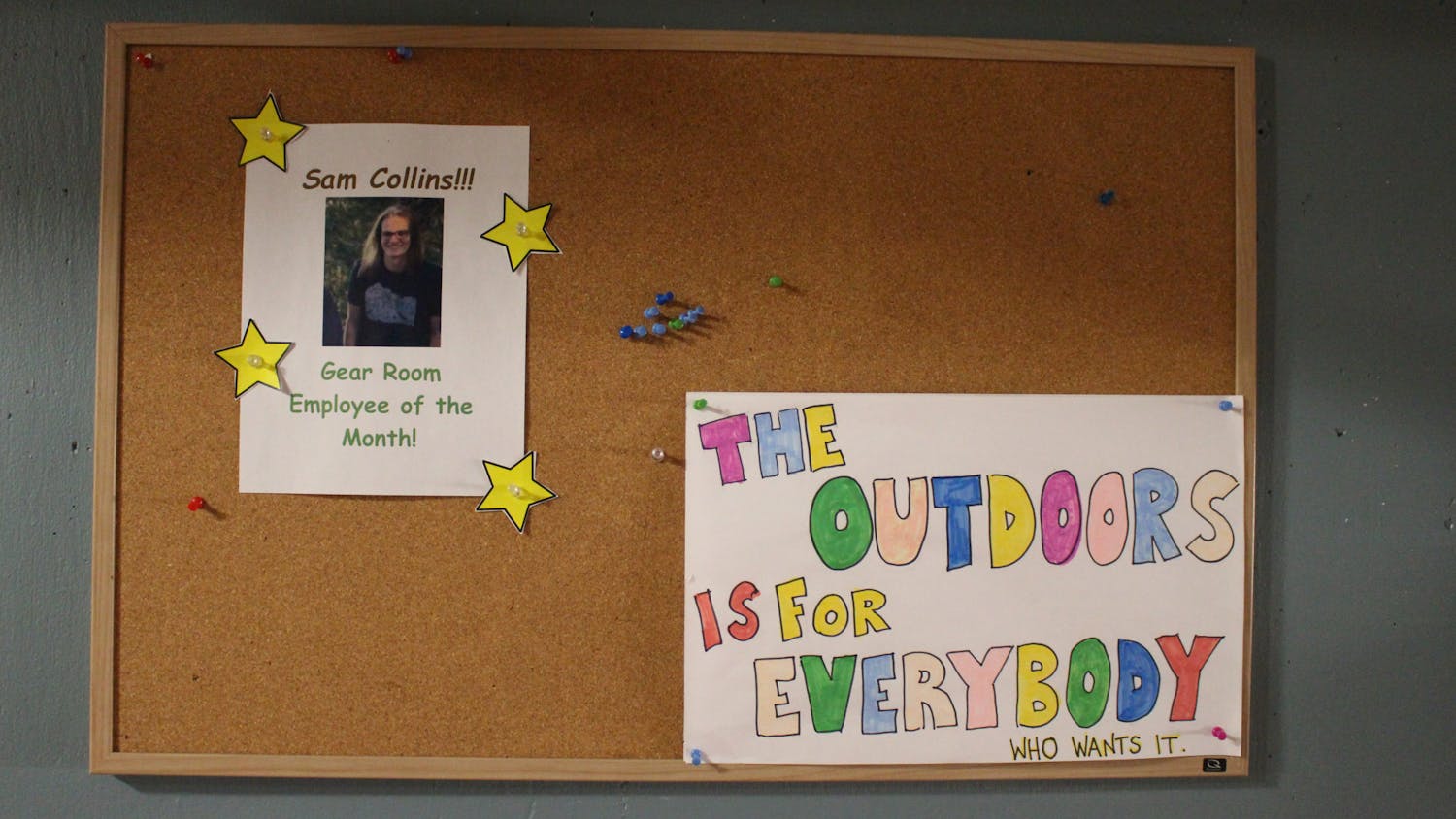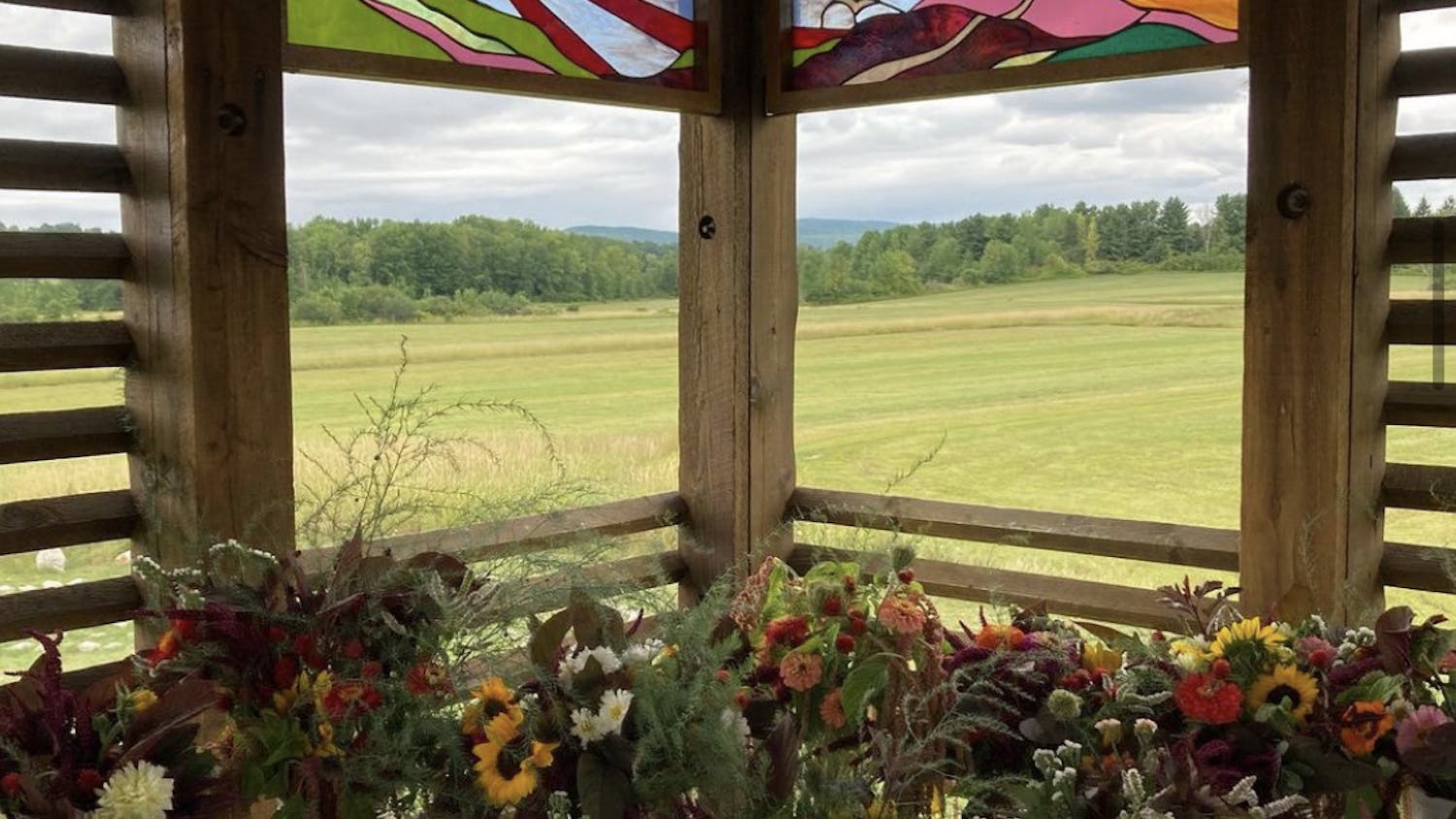Tri-Valley Transit (TVT) has doubled frequency of service for the weekday LINK to Burlington as of Nov. 1, and plans to launch midday rides and increase Saturday service this spring. This shift is a return to pre-pandemic services.
For students and community members who rely on public transportation to commute and travel around the Middlebury area, TVT buses are essential. In a region that is largely inaccessible without a personal vehicle, TVT is a crucial public transportation provider. Formerly known as Addison County Transit Resources (ACTR), TVT has a bus that stops on the edge of Middlebury’s campus and at the ADK loop.
The LINK to Burlington is a fare-free express route that runs from Middlebury to Burlington via Route 7 daily Monday through Saturday. The LINK partners with Tri-Valley Transit (Saturday) and Green Mountain Transit (Monday through Friday). According to Tri-Valley Transit’s website, popular destinations on the route include Vermont Teddy Bear, Vermont Day School, Shelburne Road, UVM Medical Center and the Burlington Downtown Transit Center.
According to Mary-Claire Crogan, the TVT community relations manager for the Addison region, the frequency of several TVT routes have been lowered since the beginning of the pandemic. This occurred at first due to the Stay Safe, Stay Home shelter-in-place order in March 2020, which limited ridership. Changes to TVT’s Dial-a-Ride program also contributed to the lowered frequency of bus routes, a program which provides door-to-door rides for residents who are elderly, living with a disability or eligible for Medicaid.
“Usually Dial-a-Rides are provided by volunteer drivers who use their own cars, but we had to pause that practice for a while to ensure safe distancing,” Crogan wrote in an email to The Campus. “Bus drivers stepped up to serve both programs — some bus services continued to meet the needs of essential workers and some bus drivers drove Dial-a-Riders door to door to vital daily appointments.”
When TVT resumed operation of the LINK in July 2021, it was only running one round trip per day due to the prevalence of telecommuting and telehealth, which resulted in fewer commuters. However, even as in-person work returned and demand began to return to regular levels, expansion was delayed by the need to hire and train drivers and purchase new buses. Loss of staff to retirement and moving out of state during the pandemic made this difficult, a reflection of the broader nation-wide workforce shortage that has stemmed from the pandemic, according to Crogan.
As more staff members have been hired, Tri-Valley Transit has increased the frequency for not only the LINK to Burlington but also the Tri-Town Shuttles, Rutland Connector and Snow Bowl Shuttle.
While the November changes mostly benefit Addison County commuters who work in Burlington and students attending private schools in Chittenden County, the addition of midday rides and more Saturday service this spring will service a broader range of interests and needs, according to Crogan. Current bus drivers will also benefit from increased hiring at TVT.
“We have been hiring new drivers to provide more capacity. This benefits other drivers because they have more regular shift schedules and more flexibility to schedule time off,” Crogan wrote.
The LINK to Burlington currently runs four round trips between Middlebury and Burlington on weekdays and three on Saturdays. Free wifi service is also offered on the bus.
One of Tri-Valley Transit’s goals is to promote environmentally conscious practices, specifically, utilizing public transportation. On its website, TVT offers a gas cost savings calculator as well as a carbon savings calculator. These tools provide information on the impact using public transportation could have on individuals and the environment.
“Most of the travel in our region is done in single-occupant cars. Riding the bus helps our region produce less greenhouse gasses [and] improves water quality,” TVT states on its website.

Maya Heikkinen '24 (she/her) is a Copy Editor.
She has previously served as an Editor at Large, News editor, copy editor and staff writer. Maya is majoring in Conservation Biology with a minor in Spanish, but is also passionate about writing. She is from Orcas Island, WA, and loves being immersed in forests, running/hiking, gardening, and hanging with plants and cats. In addition to The Campus, she has been involved in SNEG and the currently extinct WildMidd.




